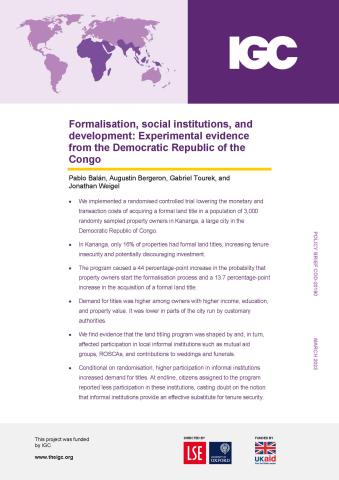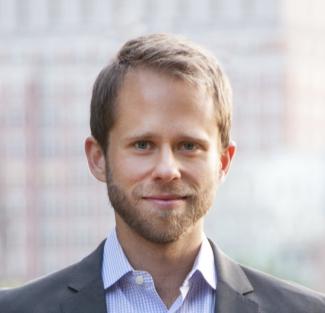Formalisation, social institutions, and development: Experimental evidence from the Democratic Republic of the Congo
-
Balan et al Policy brief March 2023
PDF document • 344.59 KB
- We implemented a randomised controlled trial lowering the monetary and transaction costs of acquiring a formal land title in a population of 3,000 randomly sampled property owners in Kananga, a large city in the Democratic Republic of Congo.
- In Kananga, only 16% of properties had formal land titles, increasing tenure insecurity and potentially discouraging investment.
- The programme caused a 44 percentage-point increase in the probability that property owners start the formalisation process and a 13.7 percentage-point increase in the acquisition of a formal land title.
- Demand for titles was higher among owners with higher income, education, and property value. It was lower in parts of the city run by customary authorities.
- We find evidence that the land titling program was shaped by and, in turn, affected participation in local informal institutions such as mutual aid groups, ROSCAs, and contributions to weddings and funerals.
- Conditional on randomisation, higher participation in informal institutions increased demand for titles. At endline, citizens assigned to the program reported less participation in these institutions, casting doubt on the notion that informal institutions provide an effective substitute for tenure security.





